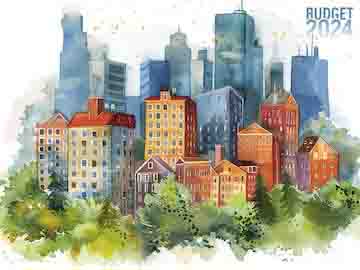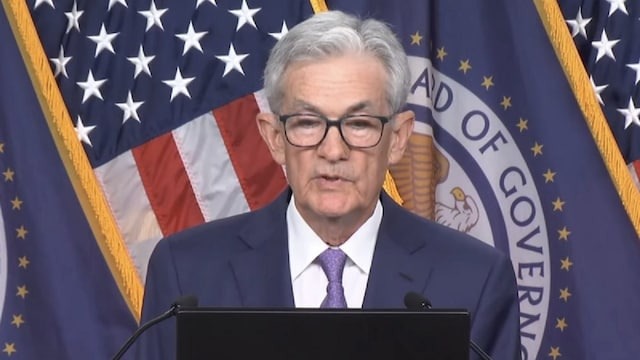
Before Finance Minister Nirmala Sitharaman presents the Union Budget 2025-26 on 1st February the real estate sector has dictated its requirements in the regard of measures that would encourage growth optimize processes and improve the affordable housing situation. The country’s realty developers have listed a number of major wishes such as receiving industrial status which has been overdue for a long period, rationalisation of stamp duty, change in the definition of affordable housing, provision of incentives for green housing, and higher tax exemptions.
Here’s how the real estate is expecting the Union Budget 2025-26 to be:
Provision Of Industrial Classification
The real estate sector has matured in other economies and it has matured in terms of its demand for industrial classification which in the opinion of the stakeholders would provide access to cheap funds and unlock institutional capital.
As Amit Modi from County Group states, “One of the most long-standing demands the sector emphasises upon is the industry status which enables people to have lower cost financing that benefits the end user directly. Another important aspect that needs to be done in order to complete the project in time is, enabling as single-window clearance.\” ~Amit Modi
According to Vivek Singhal, the approach ‘being called Smartworld Developers’, aiming for the competent in question, ‘Industry’ status, is indeed what one broadly aims to achieve, “Institutional equity capital would be accessed easily resulting in growth at all levels of the value chain as well as over 200 dependent sectors.”
Saurab Saharan, group managing director of HCBS Developments sees, “The employment generation capacity of the sector is huge and since it employs many unskilled, this move would facilitate growth and increase the sector’s economic activities.”
Affordable Housing: Redefinition Needed
“Affordable housing parameters are needed to be revised , and its need is very overdue. Replies can be given by January 2023.
According to Sudhir Pai, the CEO of Magicbricks, expanding the affordable housing price limit in metro cities to Rs 65 lakh instead of Rs 45 lakh would enable more purchasers to qualify for government incentives and therefore boost the residential demand even more.
He elaborated that the present ₹45 lakh price ceiling is, the greater variance in land cost per location makes it lower, “Instead of putting more on pricing (Mona Lisa being the $45 limit), it has to put more emphasis on carpet area which is to say 60 sqm within metros and 90 sqm outside these metros.”
In his perspective, increasing the tax incentives for real estate developers in exchange for new affordable housing policies is necessary. Also, reinstating the complete tax exemption for properties developed after March 31st, which was 100% there for projects sanctioned on March 31st, is also effective and cps classes affordable housing market needs.
Sachin Gawri, founder and CEO of RISE Infraventures, voiced similar thoughts and suggested that the affordable housing ceiling be changed to Rs 80 lakh and called for tax policies to allow affordable housing to be built in greater quantities.
Increased Limits For Tax Deductions On Home Loans In India
As smart world’s Vivek Singhal noted, “Increasing the tax deduction limit for housing loan interest under Section 24(b) to Rs 5 lakh would align with the rising aspirations of homebuyers while addressing evolving market conditions," there are industry calls for an increase to the home loan interest exemption limit.
“An enhancement of the current deduction limit from `Rs 1.5 lakh to `Rs 5 lakh under Section 80C to home buying should also be taken into account” said Manoj Gaur as he too pointed out the need for some changes under the said particular section.
The increase in stamp duty continues to be a crucial factor for developers and home buyers alike.
Stamp Duty Concerns Are Becoming Increasingly Important
Manoj Gaur, who is the president of CREDAI NCR and CMD of Gaurs Group, said “Rationalisation of stamp duty, which is one of the major calls from the sector has increased steeply and this is putting a huge cost on the purchasers.”
Supports for Green Housing and Infrastructure, location specified Growth of the sector will depend on sustainable development strategy being adopted. Rahul Singla, Director of Mapsko Group, Says “In softening of liquidity, varied financing and additional credit to paid out projects are important factors in building hope to buyers. On the other hand, there has to be promotion of green building initiatives to meet the projected demand, for investment in infrastructure in tier-2 and tier-3 cities will enhance growth and availability of houses.” Pavan Kumar, Founder & CEO of White Lotus Group said “Green housing and green building and other sustainable development initiatives will provide the international focus of India in terms of eco-friendly practices.” While addressing projects from an ecological perspective “India needs to tap on this potential.” And that involves setting structures to trigger suitable rewards. Pavan Kumar responded from Though prioritizing and engaging with the environment in developing economies.
Back_Efforts made_While_but Tackling_Stalled_Projects_%B And Liquidity Remaining top of metric “These are not issues the lack of trust amongst home was the suspension of projects,” explains Sandeep marks. “This budget is an opportunity to address some of the critical pain points the sector faces. Addressing the issues of stalled projects, which has been around for so long, to restore trust in home buyers has to be a key focus ” said qual Appy Arya. Qual has been around for a long time, and has always been focused around Technology. This 8% contribution of the real estate sector remains critical to the economy of India and has significant impacts on growth and employment.
Conscient’s business head Mohit Agarwal said that, “It is our considered opinion that the tax incentives economy stimulating measures and relaxation on market liquidity should be worked upon in during the 2025-26 Budget. The Budget will be essential towards energizing the Residential Housing Sector of India, which remains there for the most capturing portion of the country’s fiscal growth.”
Viren Mehta, director of ElitePro Infra said that, “There are a number of areas such as tax reliefs and a more simplified tax system where First home buyers can benefit or use the initiatives for their advantage. Some suggestions which can be part of the next budget are, increasing the limit of deduction available for Home loan interest from 1 lakh u/s Section 24(B), to encourage construction of green buildings, and rationalisation of GST applicable to under – construction properties.”

 Desk
Desk Share
Share






